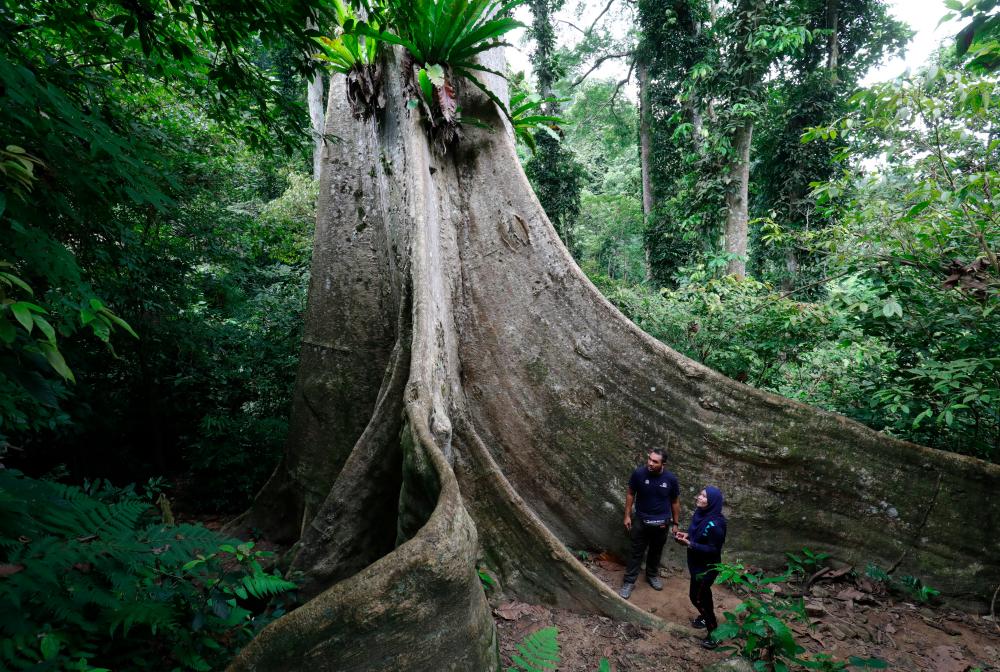PETALING JAYA: As the country’s population and economic development expands, deforestation has had far-reaching consequences on the nation, said Malaysia Association of Environmental Health spokesman Dr Subramaniam Karuppannan.
He said the government’s initiative for a nationwide reforestation plan in isolated regions to maintain ecological connectivity is crucial.
Subramaniam, who is also a retired lecturer at the Universiti Teknologi Mara Faculty of Health Sciences, said: “As Malaysia grows and develops, it requires more space for agriculture, infrastructure, and settlements. Thus, forests are cleared to make way for such activities.
“In Peninsular Malaysia, diverse and robust tropical wood such as chengal, teak and rubberwood are commonly used for furniture, as opposed to Western preference for pine, oak, and mahogany.
“However, the extraction of such wood for furniture, domestic fuel or charcoal has led to deforestation,” he said.
On statistics presented at the semi-annual Global Forest Watch for 2023, Subramaniam said reforestation efforts were ongoing but insufficient.
In 2021, Malaysia had 54% of its land area covered with forests compared with 2010, when it was 87%. That means 123,000ha of forest have been lost in the last 10 years.
Subramaniam added that reforestation is a major solution to two situations that most impact the deterioration of the country – desertification and deforestation.
“Reforestation, which is (restoring) areas destroyed in recent times by planting new trees and sowing seeds from tree species, among other strategies, is crucial to prevent natural disasters due to climate change.
“Better monitoring of forests, improved law enforcement, more efficient farming practices and private-sector initiatives to halt the sale of goods cultivated on illegally deforested land can help to reduce the rate of deforestation.”
He said reforestation efforts also need to be expanded by the government to alleviate the effects of deforestation, adding that initiating action to address deforestation is critical for the future health of the planet and the sustainability of its ecosystems.
“I trust that halting and reversing land clearance in tropical forests could reduce global carbon emissions by nearly 18% by 2030. However, other than reforestation, more needs to be done to address the root causes of deforestation.”
While supporting Subramaniam’s call, a forestry and environment division officer at the Forest Research Institute Malaysia, who wished to be known only as Fitri, said deforestation has serious implications for the indigenous communities that rely on forests for their livelihood.
“Deforestation leads to the loss of biodiversity, negatively impacting ecosystems and disrupting the balance of the carbon and water cycles that sustain life. The impact of deforestation has far-reaching implications for the country.”
Fitri said deforestation contributes to increased carbon footprint as land use changes, adding that deforestation contributes 12% to 20% of global greenhouse gas emissions while forest degradation, and the destruction of tropical peat land also contribute to such emissions.
During the opening ceremony of a forest conservation conference held in Kuching on June 12, Natural Resources, Environment and Climate Change Deputy Minister Datuk Seri Huang Tiong Sii said Malaysia has embarked on a nationwide reforestation programme in fragmented areas to ensure biological connectivity.
“This reforestation programme can help to protect and preserve the country’s diverse wildlife populations. By planting more trees, we can help to mitigate the effects of climate change by reducing the amount of greenhouse gases in the atmosphere, restoring soil health and preventing further degradation.
“Environmental activists and private sector companies have contributed to reforestation as such issues cannot be addressed by government agencies alone,” he said.









